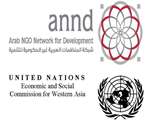Published on Fri, 2015-05-15 08:18
As negotiations on the draft outcome of the Financing for Development Conference resume at the United Nations in New York, the European Commission launches its 2015 European Report on Development titled Combining finance and policies to implement a transformative post-2015 development agenda to contribute to the debate . The European Commission sends a strong message in its 377 page-long report: the Sustainable Development Goals will require substantial additional finance (well beyond ODA), but any additional financing should be coupled with reformed policy frameworks at the local, national and global level to bring about the expected results. |
Published on Wed, 2015-05-13 10:04
They say in Africa that you do not correct an older man in public. So with all due respect to the very able team of Nobel Laureates, Intellectual minds and some Civil Society and Non State Actors who have been advising the Copenhagen Consensus, allow me to explain why I think they are wrong in asserting that we should abandon the work that the United Nations has done and instead focus all our resources and energy on what they call “ 19 Smarter Targets for Development by 2030”. |
Published on Wed, 2015-05-13 00:00
The 2016 AWID International Forum on Women's Rights and Development “Feminist Futures: Building Collective Power for Rights and Justice” will take place from 5 to 9 May 2016 in Salvador, Bahia, Brazil. You can contribute to the 2016 Forum by submitting a proposal to organize a session. This invitation is for those who believe in futures free from gendered oppressions, the realization of full rights for people and planet, and self-determination from the body to the nation. |
Published on Tue, 2015-05-12 00:00
From 13th to 16th July Heads of State and Government, and Ministers of Finance, Foreign Affairs and Development Cooperation will gather for the third International Conference on Financing for Development (FfD3), taking place in Addis Ababa, to adopt an inter-governmentally negotiated and agreed upon outcome. Whether it succeeds or fails in setting the right path towards establishing the just and healthy economies needed to make the Sustainable Development Goals possible, and form the basis for a world where gender justice and environmental sustainability are possible and in which the respect, protection and fulfillment of human rights are a lived reality for all people, is highly dependent on how the structural nature of the problems at hand will get prioritized and taken up. For economic justice to be realized, the current draft outcome (released on May 7th 2015) proposed towards this high level conference needs to change to be transformative and work towards redressing the imbalances between corporate and public power, as well as inequalities resulting from ‘North – South’ relations. |
Published on Thu, 2015-05-07 19:33
In the eve of an official regional forum on sustainable development, the Arab citizen organizations proposed alternative strategies. The NGO Network for Development (ANND), in collaboration with the Economic and Social Commission for Western Asia (ESCWA) and with the participation of the Civil Society Division in the League of Arab States, spelled out policy alternatives and submitted them to the governments. Read here the "Alternative Development Strategies for Post-2015: Exit from the Current Policy Approach". |
SUSCRIBE TO OUR NEWSLETTER







